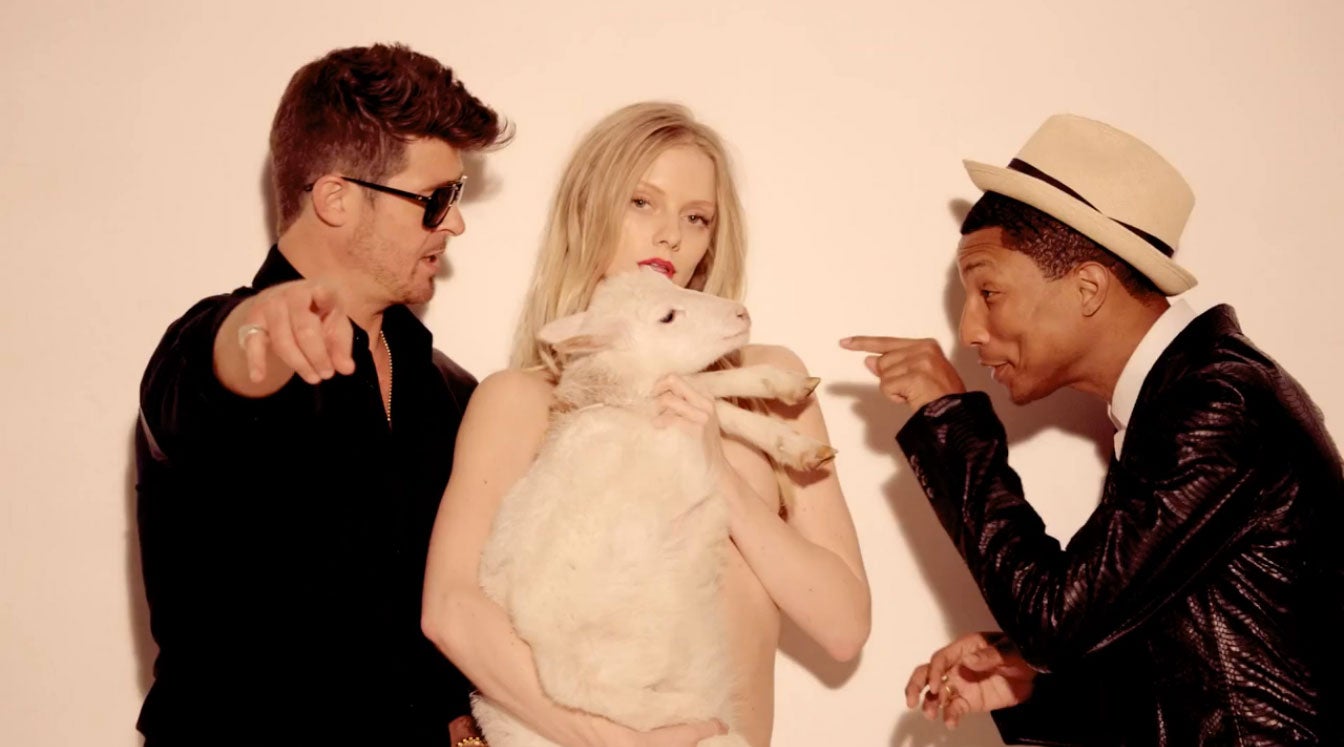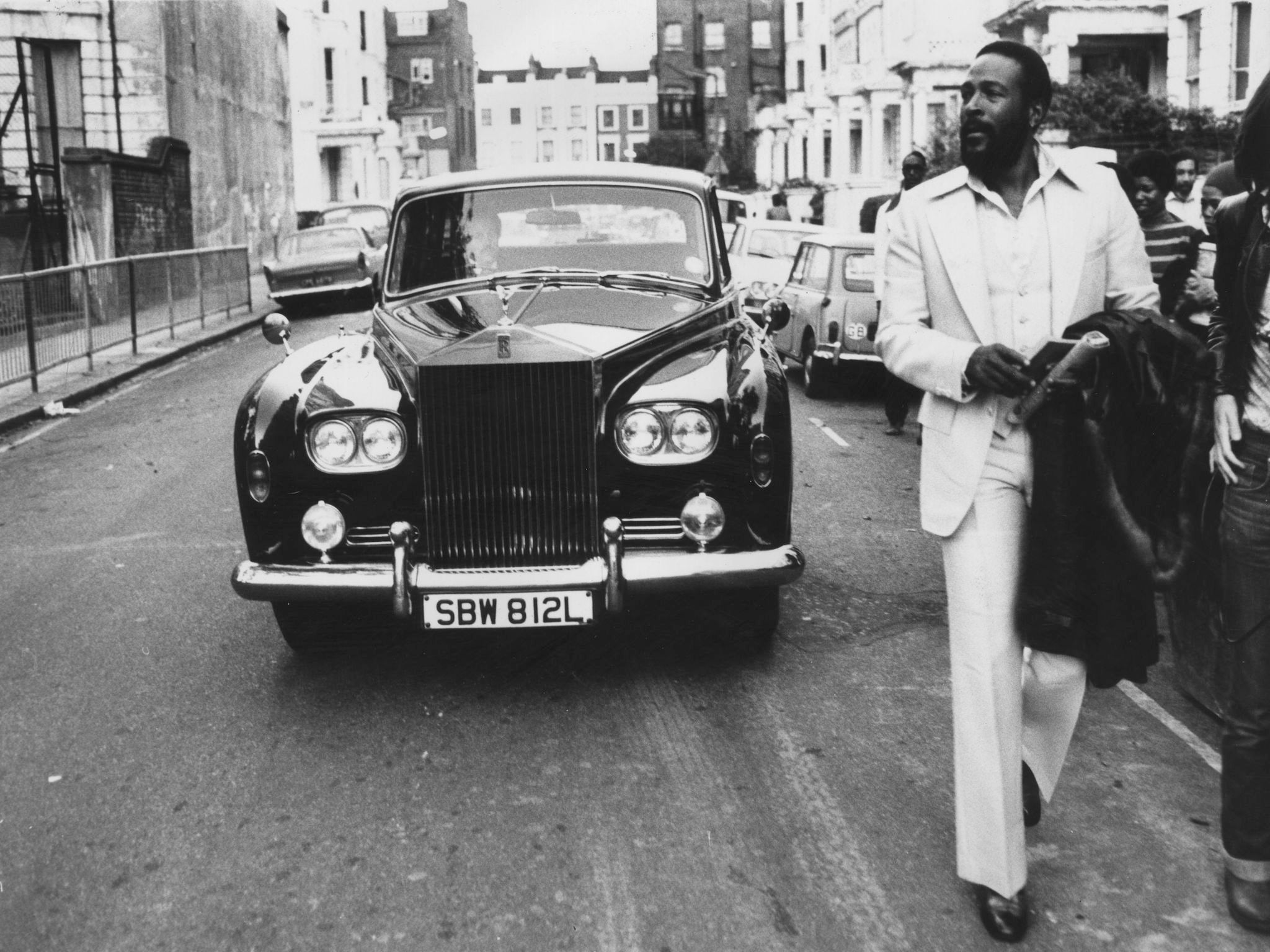Blurred lines: Pharrell Williams and Robin Thicke ordered to pay out $7.3m to Marvin Gaye's family
Jury decided they copied Gaye's Got to Give It Up

Your support helps us to tell the story
From reproductive rights to climate change to Big Tech, The Independent is on the ground when the story is developing. Whether it's investigating the financials of Elon Musk's pro-Trump PAC or producing our latest documentary, 'The A Word', which shines a light on the American women fighting for reproductive rights, we know how important it is to parse out the facts from the messaging.
At such a critical moment in US history, we need reporters on the ground. Your donation allows us to keep sending journalists to speak to both sides of the story.
The Independent is trusted by Americans across the entire political spectrum. And unlike many other quality news outlets, we choose not to lock Americans out of our reporting and analysis with paywalls. We believe quality journalism should be available to everyone, paid for by those who can afford it.
Your support makes all the difference.A jury has decided that Pharrell Williams and Robin Thicke copied a Marvin Gaye song to create their track "Blurred Lines" and awarded $7.3m to Gaye's family.
The eight-person panel reached the decision on Tuesday after hearing nearly a week of testimony about similarities between "Blurred Lines", a monster hit in 2013, and Gaye’s 1977 song "Got to Give It Up".
Gaye’s children had sued Thicke and Williams, saying their song infringed the copyright of their father's original composition. The singers denied copying Gaye’s music.
"Blurred Lines" earned more than $5m each for Thicke and Williams. Although both are credited as its songwriters, Williams wrote the song in about an hour in 2012, and the pair recorded it in one night, the Associated Press reported.
The decision by the jury at the court in Los Angeles followed a closely watched trial in which the jurors were played clips of the two tracks. Gaye’s family called upon a musicologist who analysed the songs and concluded there were eight similar elements, including the bass and keyboard line, the hook and a repeated theme. The percussion track and a drum fill also sound very similar.
The family also claimed that Thicke and Williams had previously talked of their desire to try and record a song like "Got to Give It Up". The two musicians dismissed this as little more than casual chat and Williams insisted he had written the song by himself without Gaye in mind.
Williams took to the stand to declare that while the may have had the feel of Gaye and the late 1970s, but that the song was wholly original. "As a creator, you get a kick out of bringing new things into the ether," he testified.

The Los Angeles Times said that Thicke, during his turn on the stand, played a medley of pop songs on a keyboard to demonstrate that many of them share the same chord progression and can sound similar. He said he had lied repeatedly in interviews and in sworn legal documents, trying to claim credit for part of writing the song.
The jury verdict included a judgment of almost $7.4m to be awarded to Gaye's heirs, including $3.4m in profits that Thicke and Williams were found to have derived from the infringement.
Enjoy unlimited access to 100 million ad-free songs and podcasts with Amazon Music
Sign up now for a 4 month free trial (3 months for non-Prime members)
Enjoy unlimited access to 100 million ad-free songs and podcasts with Amazon Music
Sign up now for a 4 month free trial (3 months for non-Prime members)
Gaye's daughter, Nona Gaye, reportedly hugged her attorney and wept as the court clerk read the verdict and concluded a week that had provided a tantalising and gripping insight into the boundaries between musical inspiration and simple theft.
Join our commenting forum
Join thought-provoking conversations, follow other Independent readers and see their replies
Comments